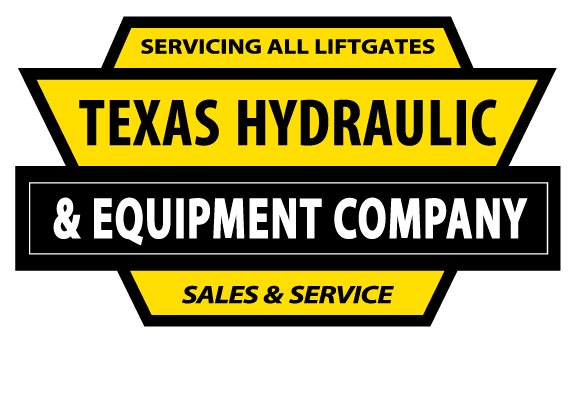What is a Lift Gate and How Does it Work
Liftgates are one of the unsung heroes of work and industrial sites everywhere, quickly fulfilling loading and unloading operations when other solutions aren't available. They also expand functionality for workforces in various capacities, safely increasing productivity and efficiency whenever operations call for light to moderately heavy-duty hauling and delivery.
With a properly functioning liftgate, your company achieves greater independence and enables individual employees to accomplish what otherwise would require larger crews or costly heavy machinery. For nearly 80 years, Texas Hydraulic & Equipment has served the liftgate repair needs of numerous major enterprises.
Read on to learn what a liftgate is and how it supports a wide range of equipment or material lifting and transportation needs.
WHAT IS A LIFTGATE?
A liftgate is a freight- or load-lifting device, usually installed in the back of a truck or trailer. Many industries use liftgates if the delivery site lacks a loading bay of the proper height or if other lifting solutions (e.g., forklifts or hoists) are unavailable. Under such circumstances, industries typically require a liftgate to load or unload items exceeding 150 pounds.
There are numerous liftgate brands on the market with a proven track record of safe and reliable operation. That's why it's important to ensure your liftgate service technician has an equally robust history working with all major liftgate makes and models, including custom solutions for specialty or out-of-date equipment.
HOW DOES A LIFTGATE WORK?
Liftgates use hydraulic, pneumatic, or electric power transfer mechanisms to direct power into a linear or rotational force, which moves the liftgate platform. Lifting operations are controlled by a switch box with simple up/down controls, and liftgates are generally capable of safely handling loads between 1,500 and 3,500 lbs.
Depending on the design, a liftgate will use various combinations of pulleys, wheels, rollers, cables, chains, and other components, and the technology changes by the year. Electromagnetic actuators, for example, dramatically simplify liftgate designs, reducing weight and system complexity in the process. However, pneumatic/hydraulic liftgate technologies have endured and are still being innovated and improved on to this day.
If you've ordered a shipment or pickup service that requires a liftgate delivery, the driver will almost always be responsible for handling the liftgate and load. However, it's good for anyone to learn how to use a liftgate safely and responsibly.
BENEFITS OF USING A LIFTGATE
Not only do liftgates fulfill certain requirements for industry-sanctioned lifting and unloading operations, but they also expand functionality for various delivery and transportation professionals. Even individuals often equip their own trucks, vans, or trailers with liftgates simply to increase their own utility.
For any use, the core benefits of a liftgate are the same:
Achieves efficient, high-capacity lifting
Uses minimal equipment
Keeps crews safe
Protects worksite surfaces and equipment
Fulfills various general industry codes and regulations
Reduces the need for other equipment
Travels with you anywhere
UNLEASH THE POWER OF TEXAS HYDRAULIC & EQUIPMENT'S LIFTGATE SOLUTIONS
Since 1945, Texas Hydraulic & Equipment has been at the forefront of liftgate technology, including various mounting and lifting mechanisms. We've served the lifting needs of a wide range of industries.
We serve the widest range of liftgate servicing needs with our premium liftgate parts and testing and service center just outside the Dallas Metro area. Customers can rest assured of the highest-quality OEM solutions whenever possible and fully compatible custom repairs for more specialized liftgates no longer in production.
Texas Hydraulic & Equipment is a family-owned operation committed to providing world-class liftgate service and repair. Contact us to learn more about our services or to request a quote and maintain safe and efficient mobile lifting for the long haul.
Image Source: Deep Desert Photography/Shutterstock

